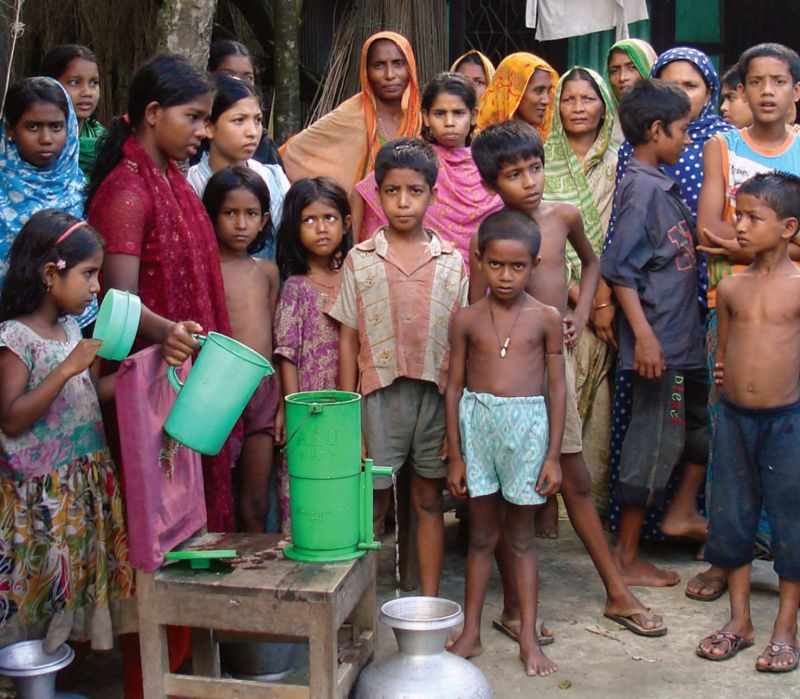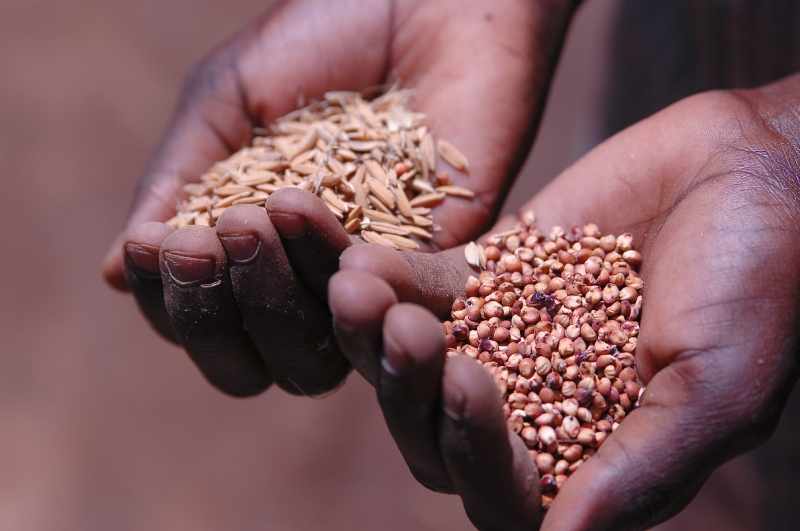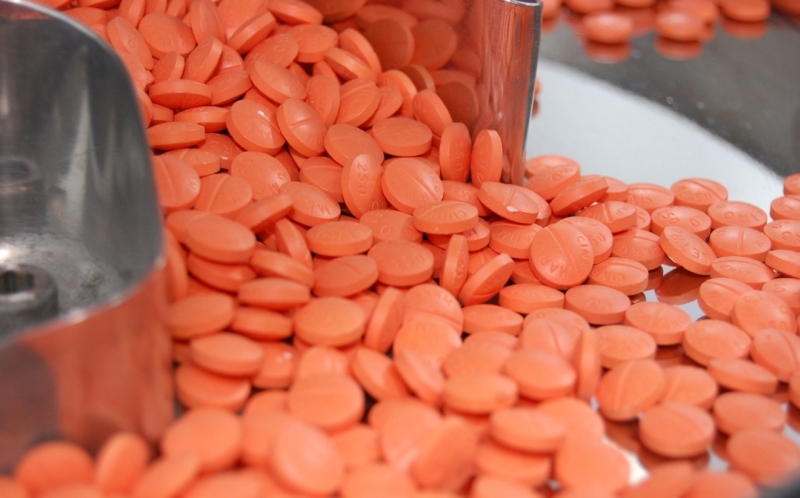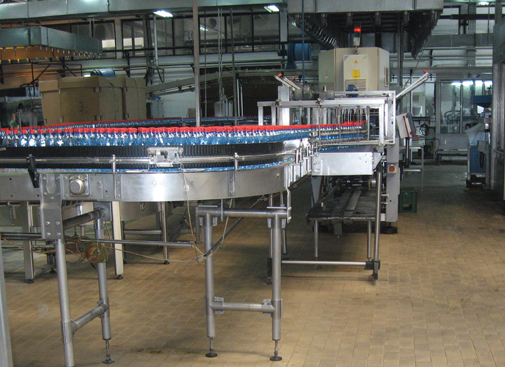A selection of UNIDO field projects within the Organization's three thematic areas: Poverty Reduction through Productive Activities; Trade Capacity-Building; and Environment and Energy.
Poverty Reduction through Productive Activities
Bangladesh - Arsenic-free drinking water
UNIDO, with the support of the United Nations Trust Fund for Human Security (UNTFHS), has assisted the Government of Bangladesh with an arsenic removal project in areas with the highest levels of arsenic intoxication.
Bangladesh - Supporting sustainable small holder farmer milk production
The project is to introduce international best practices and knowledge in efficient dairy farming to poor, small scale dairy farmers in Bangladesh as well as establishing a milk collection system allowing collection and preservation of growing volumes of high quality raw milk. This will lead to increased well being of all people living in the villages covered by the 5 dairy hubs.
Cambodia - Supporting the growth and development of marine fishery exports
UNIDO launched a new project worth more than USD1.3 million to assist Cambodia in improving the capacity of the export of marine fishery products.
Cambodia - Transforming e-waste into Job and Business Opportunities
UNIDO recently launched a programme together with the Republic of Korea through Korea International Cooperation Agency (KOICA) and Samsung Electronics to ensure that Cambodia’s electronic industry is effective in promoting economic and environmental sustainability.
China - Bamboo skills development, production and demonstration centre
The project aims to accelerate the pace of economic growth and poverty alleviation in China through the promotion of employment and income generating activities in the SME sector through the implementation of the Enterprise Development and Investment Promotion Program.
Global - Agribusiness and agro-industrial development
In partnership with other development partners and UN organizations, UNIDO initiated a joint programme (3ADI) in the areas of agribusiness value chains, food security, policies, financing and related trade. The initiative calls for the accelerated development of agribusiness and agro-industries to ensure value addition to agricultural products of developing countries.
Global - Strengthening local production of essential medicines in developing and least developed countries
UNIDO is assisting Ghana, Kenya and Vietnam with the formulation of strategies to develop the local pharmaceutical industries and ways to implement them.
India - Combining businesses
With the financial support of the United Kingdom's Department for International Development (DFID), UNIDO developed a support programme to strengthen four selected clusters and their SME networks that work with handlooms, handicrafts and non-timber forest products.
Indonesia - Supporting reconstruction efforts
With funds from the Government of Japan through the United Nations Trust Fund for Human Security (UNTFHS), UNIDO and the International Labour Organization (ILO) are implementing a project to support the islands’ reconstruction and reconciliation process.
Lao PDR - Opium-free livelihoods
In 2007, UNIDO, the United Nations Office on Drugs and Crime (UNODC) and the Government started a project to alleviate opium dependence and elevate living standards. The project combined the technical expertise and comparative advantages of both organizations.
Pakistan - Towards gender parity: women in creative industries
Expanding employment and creating livelihood opportunities for women has been achieved by the establishment of the Business Growth Center which aims to work towards enhancing ability, mobility, visibility and connectivity of women entrepreneurs.
Trade Capacity-Building
India - Gears of growth
Since 1999, UNIDO has assisted Indian small and medium-sized enterprises within the automotive component sector to overcome challenges related to low productivity, insufficient and inconsistent quality, and scalability, so that they could become more efficient, reliable and cost-effective suppliers of automotive parts.
Environment and Energy
China - Demonstration Sub-Project for Conversion From HCFC-22 to Propane at Midea Room Air-Conditioner Manufacturing Company and Demonstration Sub-Project for Conversion Of Room Air-Conditioner Compressor Manufacturing From HCFC-22 to Propane at Guangdong Meizhi Company
China - Reduction of Mercury Emissions and Promotion of Sound Chemical Management in Zinc Smelting Operations
Global - Chemical Leasing: Redefining the Sustainable Management of Chemicals
Chemical Leasing is service-orientated business model that adopts a multi-stakeholder approach to promote the sound and efficient management of chemicals throughout their life-cycle. UNIDO, with the direct support of the governments of Austria and Germany, has been pioneering Chemical Leasing in developing countries and transition economies since 2004. Download the factsheet, which takes a closer look at how Chemical Leasing brings about a win-win situation for the chemical supplier and the chemical user, as well as the environment.
India - Climate-friendly refrigerators
With the financial support of the Swiss State Secretariat for Economic Affairs, UNIDO worked very closely with two large Indian refrigeration manufacturers (Godrej & Boyce Mfg. Co. and Videocon Appliances Ltd.) towards developing new CDM methodologies, with the aim of reducing environmental pollution and improving competitiveness.
Mongolia - Reduce Exposure of Mercury to Human Health and the Environment by Promoting Sound Chemical Management
Co-financers: The Mongolian Ministry of Nature and Green Development, the Mongolian Ministry of Health, the private sector (Mireco) and UNIDO
Phillipines - Improve the Health and Environment of Artisanal Gold Mining Communities in the Philippines by Reducing Mercury Emissions
The project aims to promote sound chemical management of mercury
by strengthening national capacity and reducing mercury use, emissions
and exposure at pilot demonstration sites.
Viet Nam - National Cleaner Production Centre
With funds from the Swiss State Secretariat for Economic Affairs (SECO), the National Cleaner Production Centre of Viet Nam (VNCPC) was established in 1998 and is part of the Hanoi University of Technology. By the end of 2009, the VNCPC had 16 employees and was active in the following industry sectors: pulp and paper, textile, food processing, seafood processing, metal finishing, building materials, chemicals and handicraft.


















